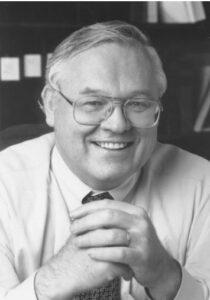The meeting will feature discussion of budget assumptions for the coming year and expected approval of the amount of the annual increase in student tuition beginning the next academic year
 The Yavapai Community College District Governing Board will hold a meeting on Tuesday, October 29, 2024, in Room M-137 on the Verde Valley Campus in Clarkdale. The meeting is scheduled to begin at 1:00 p.m. and is expected to last approximately three hours. A live video stream will be available on YouTube.
The Yavapai Community College District Governing Board will hold a meeting on Tuesday, October 29, 2024, in Room M-137 on the Verde Valley Campus in Clarkdale. The meeting is scheduled to begin at 1:00 p.m. and is expected to last approximately three hours. A live video stream will be available on YouTube.
The agenda includes an Open Call to the Public, allowing residents and other attendees an opportunity to address the Governing Board at the beginning of the meeting. Individuals wishing to speak should complete a “Request to Speak” form and submit it to the Recording Secretary prior to speaking. Speakers should be prepared to limit their remarks to the allotted time, which is usually three minutes.
Under Arizona law, the public has the right to attend, listen, record, or videotape these meetings. While attendees may not disrupt the meeting, they are welcome to speak during the Call to the Public. For further details, see Ariz. Att’y Gen. Op. No. I78-001.
The meeting will include a discussion on budget assumptions for the upcoming fiscal year, with final approval scheduled for May 2025. Additionally, the agenda features a request to raise student tuition—an annual appeal by the college as the costs of its expanding operations on the west side of the County continue to substantially increase.

 The University Women of Sedona will host their next informational program on Monday, November 4 at 9:30 a.m. when representatives of Yavapai Community College will share updates on several of their specialty programs.
The University Women of Sedona will host their next informational program on Monday, November 4 at 9:30 a.m. when representatives of Yavapai Community College will share updates on several of their specialty programs.
 Yavapai Community College launched a weekly podcast in October, aiming to cover a wide range of topics, including academics, athletics, campus life, and more. You can listen to a podcast
Yavapai Community College launched a weekly podcast in October, aiming to cover a wide range of topics, including academics, athletics, campus life, and more. You can listen to a podcast  Yavapai Community College will host a “Student Basic Needs” Resource Fair on the Verde Valley Campus in Clarkdale on October 24, from 11 a.m. to 2 p.m.
Yavapai Community College will host a “Student Basic Needs” Resource Fair on the Verde Valley Campus in Clarkdale on October 24, from 11 a.m. to 2 p.m.


 Sedona’s Mayor and City Council members reacted with mixed emotions to Yavapai Community College officials’ refusal to attend the October 9 workshop, which was intended to foster dialogue about the College. The refusal was a direct response to questions submitted to the College as a courtesy prior to the meeting by Mayor Scott Jablow. The refusal is viewed as an indication of the College’s reluctance to be transparent with the public about critical issues, such as student enrollment trends and the future of the institution in Sedona and the Verde Valley.
Sedona’s Mayor and City Council members reacted with mixed emotions to Yavapai Community College officials’ refusal to attend the October 9 workshop, which was intended to foster dialogue about the College. The refusal was a direct response to questions submitted to the College as a courtesy prior to the meeting by Mayor Scott Jablow. The refusal is viewed as an indication of the College’s reluctance to be transparent with the public about critical issues, such as student enrollment trends and the future of the institution in Sedona and the Verde Valley.